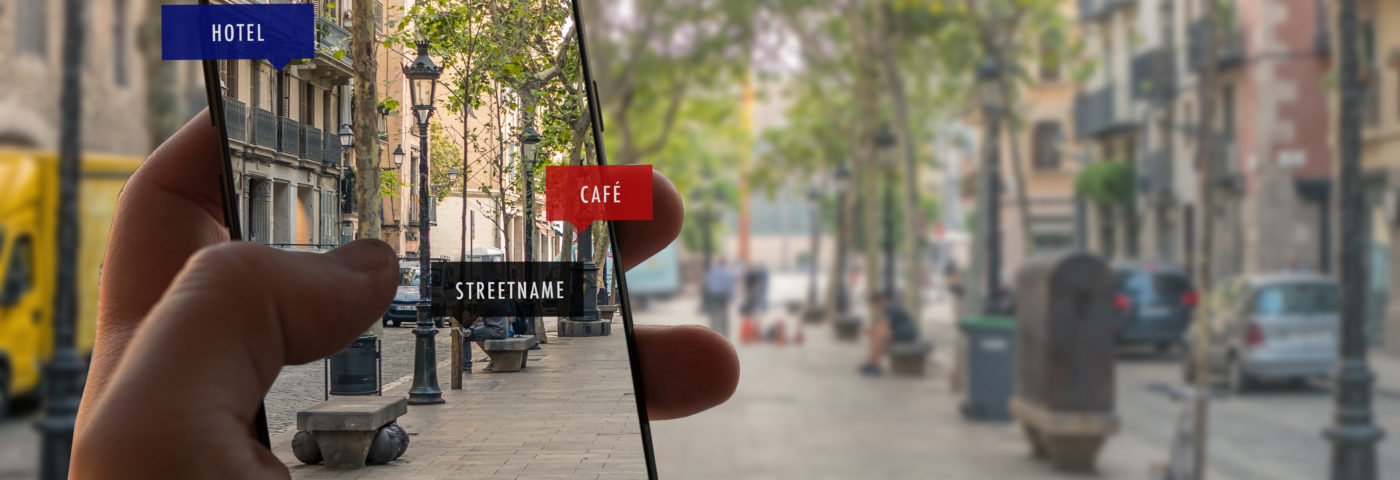When travel demand returns, the competition between hotel direct, OTAs and retail agents will be even more intense. Virtual Reality, and other rich content tools, could be the means to turn lookers into bookers for hotels.
Want to hear the latest travel tech updates? Make sure you REGISTER for WTM Virtual so you don’t miss out!
Traveling became virtual for many people during lockdown and social isolation. Virtual tours of popular destinations, museums and galleries were viewed widely as people engaged with 360-degree videos and immersive content in great numbers.
For hotels and destinations, the consumer acceptance of digital armchair travel as a short-term stop gap has opened up some new and immediate promotional opportunities based around augmented and virtual reality-based campaigns.
The Faroe Islands, again, won many plaudits for its innovative use of human tour guides and G-PRO cameras to allow visitors to explore the islands remotely.
Marketing departments still at work could think about raising awareness and brand positioning, rather than having to focus their efforts on actual bookings. Hotels are facing an uncertain short- and medium-term future. Demand for business and leisure travellers will return but will be influenced by a constantly changing global set of travel advisories, over which hotels have no say.
Despite the lack of future bookings, hotels need to continue to engage with existing and potential guests, and VR is one way of doing this.
By offering VR options during the search process to those who have the hardware at home synchs with the experiential trend in travel. Many hotels no longer talk about “guest stays” preferring the on-trend “guest experiences”. Offering guests a VR option reinforces a hotel’s credentials as more than just a room.
Oracle Hospitality’s Hotel 2025 research shows that more than half the sample – 2,700 customers and 150 hoteliers – believe that VR will be used in the booking process by 2025 and nearly half the customers (45%) said they would visit hotels more often if they offered that service.
In the corporate space, hotels have replaced the traditional site for planners visit with a virtual equivalent. 360-degree tours of the rooms and amenities have been an option for a few years but are now being updated with tours via virtual reality headsets and 3-D walkthroughs.
The Travel Forward StartUp Competition 2019, for example, included on the shortlist an immersive content specialist for meetings and events, FirstView. It has built a 3D diagramming and RFP management tool for meetings & events which allows planners to visualise different options and layouts.
Startups are competing, as ever, with the global blue-chip tech giants, many of whom have an interest in the hospitality industry and VR. Consumer powerhouse Apple has been waiting its time to launch a VR/AR product, but within the past week has bought a business to help it produce VR content.
Leisure-focused hotels can use this type of technology to help increase direct sales by giving holidaymakers 3-D tours or 360-degree views of the rooms and on-property amenities. The ‘live like a local” trend has a strong cross-over with the experiential trend, prompting many leisure hotels to additional rich content, highlighting off-property options in the neighbourhood or further afield.
OTAs and retail agents are also aware that 360-degree video and VR can increase engagement and conversion. Brands owned by Booking Holdings and Expedia Inc have been adding rich content across their points of sale for some time, but this is one area where smaller and niche agents can catch up – the hardware needed to produce VR content, better 360-degree tours and razor-sharp video is more affordable.
Specialist tech providers in this sector talk about a double-digit increase in web engagement and conversion for hotels offering these options.
The future for hotels is uncertain, and there could be long-term changes to operations, sales, marketing and distribution. Traveller trends will change too, in response to changes in their own circumstances and in the wider world. The competitive nature of the sector will not change, and a well-executed VR/AR component to the search and shopping phase could be the clincher that secures the booking.
By Travel Forward Team
You may also be interested in…
- Time for airlines to revisit new-and-improved virtual reality
- The current thirst for virtual travel and its role in future travel planning
- Contactless Hotel Operations Have Moved from Nice-to-Have to a Necessity


